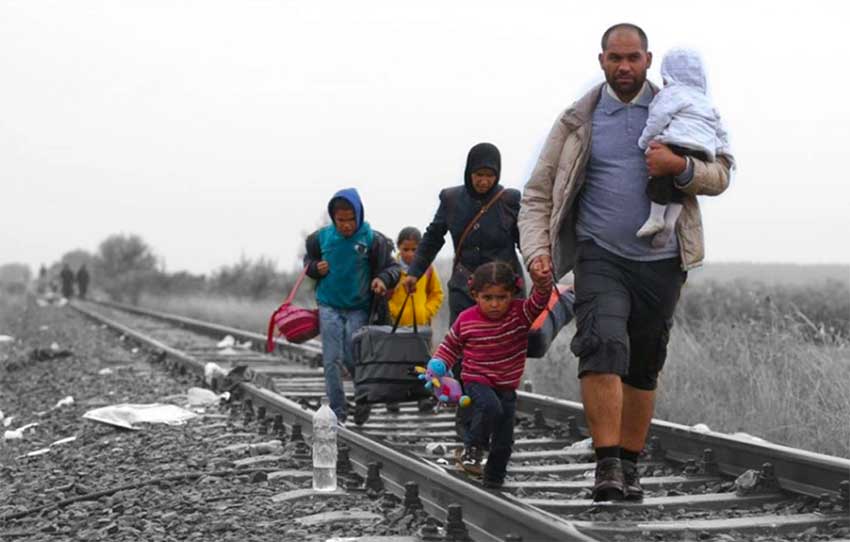by the El Reportero’s wire services
SACRAMENTO, Calif. – Many in the immigrant rights community are rejoicing after federal authorities agreed this week to let people with Temporary Protected status from Honduras and Nepal continue to live and work here legally until litigation is resolved.
The Trump administration already had granted a similar nine-month extension for people from El Salvador, Haiti, Nicaragua and Sudan.
Ahilan Arulanantham, senior counsel at the ACLU of Southern California, maintains that the government is targeting TPS holders for deportation on the basis of race.
The government argues that the initial crises in these people’s home countries have been resolved, so they should return.
But many of them have been here – legally – for decades and have businesses and children who are U.S. citizens.
There are about 300,000 TPS holders overall, with 85,000 from Honduras and 15,000 Nepal.
Arulanantham is urging Congress to step in and grant permanent status to people with TPS.
“All of the relief that is being provided by these lawsuits is temporary, and it is not what people from these countries deserve,” he states. “What they deserve is permanent residence because they’ve lived here for years, contributed so much to this country.”
The case now is in the Ninth Circuit Court of Appeals where this summer a judge is expected to hear the TPS case involving people from El Salvador, Haiti, Nicaragua and Sudan.
All sides now have agreed that the ruling on that case also will apply to TPS holders from Honduras and Nepal. (Source: Suzanne Potter, California News Service).
Wave of migrants from Haiti, Africa, Asia appears in Chiapas
They are applying for transit visas in order to travel to the US border
by Mexico News Daily
Central Americans are not the only migrants entering Mexico at the southern border: more than 500 Africans, Asians and Haitians have also arrived recently in Chiapas.
Migrants from the Congo, Cameroon, Angola, Senegal, Sierra Leone, Uganda, Nepal, India, Sri Lanka, Bangladesh and Haiti crossed into Mexico from Guatemala in the final days of February and the first week of March, according to a report in the newspaper El Universal.
The migrants voluntarily reported their entry to immigration authorities and requested transit visas that will allow them to legally continue their journey to the United States’ southern border, where they plan to seek asylum.
As they wait for their visas to be processed, most migrants are staying at a National Immigration Institute (INM) facility in Tapachula, where some of them claim they have been discriminated against because of the color of their skin.
“[There’s] a lot of discrimination in Mexico, a lot of discrimination . . . The whites eat first and once a day we get the little that’s left over,” a group of migrants told El Universal.
They also said they have to sleep on the floor or in the bathroom area of the shelter and that they are involuntarily hosed down each morning with cold water.
In addition, the migrants claim that Central Americans staying at the same facility smoke cigarettes and marijuana inside the facilities.
However, some of the migrants – including pregnant women and children – say that they haven’t been allowed into the immigration facility and have instead been forced to sleep outside on a concrete floor.
Around 200 migrants from African countries and Haiti claim that they have also been prevented from requesting 20-day transit visas that will allow them to continue their journey north.
Without money to pay for alternative accommodation, the migrants are forced to wait in front of the facility in temperatures that can rise to as high as 40 C.
African migrants said they flew from their countries of origin to South America before continuing to Mexico’s southern border via Central America.
Many said they were attacked by criminals and police during their journeys and spent all their money on people smugglers, transportation, accommodation and food.
Source: El Universal (sp).



